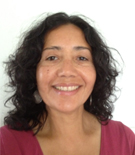Preventing type 2 diabetes in high risk young adult women using automated telephone support

Women with prior gestational diabetes (GDM) represent the single most identifiable risk group for subsequent rapid onset of Type 2 diabetes (DM), with estimates that women with prior GDM have 7 times the risk of developing diabetes relative to women with normal-glycemic pregnancies.
Latina and Asian women are at high risk of GDM and subsequent diabetes and are likely to face additional language and literacy barriers that may reduce the impact of available behavior change interventions for reducing diabetes risk.
Based on the findings of postpartum interventions directed at weight loss, exercise, and dietary changes, interventions that deliver home-based or telephone intervention components may enable adherence among postpartum women, as these may better meet the needs of women with young infants or young children.
Interventions are critically needed that are specific to women with prior GDM. The overarching goal of this project is to create, test, and measure the impact of an innovative, multilingual health IT intervention for younger (under age 35 years) Latina women with recent GDM, focused on the 6-month postpartum period.
The study’s content and counseling strategies are drawn from an evidence-based, literacy tailored diabetes self-management intervention, Automated Telephone Self-Management Support (ATSM), which provides both automated queries to patients and "live” health coach counseling call backs to problem solve and offer support. The ATSM will be renamed Support via Telephone Advice and Resources (STAR-MAMA).
This project is led by Dr. Margaret Handley, an outstanding epidemiologist with lengthy experience working in Latino and immigrant communities, and specifically with this ATSM intervention.
This project:
-
combines the prior successful ATSM intervention with participatory approaches adapted to diabetes prevention in women with prior GDM
-
tests the intervention in safety net clinics in 2 counties with large numbers of Latina GDM patients in the SF Bay Area
Participants in this study are Latina women enrolled at San Francisco General Hospital and in public health clinics in Sonoma County, approximately 30 miles north of San Francisco. This CHARM project will contribute new knowledge of the level of individual behavioral change to prevent chronic disease that will complement approaches in the other two projects.
Impact
UCTV production: Women’s Health Today - UCSF National Center of Excellence in Women's Health - Dr. Kirsten Bibbins-Domingo presents risk factors for the leading cause of death among women: heart disease and stroke.
News
Events
-
Monday, October 20, 2014
-
Friday, July 11, 2014
-
Tuesday, June 17, 2014
-
Thursday, April 10, 2014
-
Thursday, April 3, 2014
-
Friday, March 21, 2014
-
Friday, February 21, 2014
-
Saturday, February 22, 2014
-
Monday, February 3, 2014
-
Friday, January 17, 2014
-
Tuesday, January 14, 2014
-
Monday, December 2, 2013
-
Tuesday, November 12, 2013
-
Monday, November 4, 2013
-
Friday, October 18, 2013
-
Saturday, October 12, 2013
-
Monday, October 7, 2013
-
Friday, September 27, 2013
-
Tuesday, September 24, 2013
-
Tuesday, August 27, 2013














